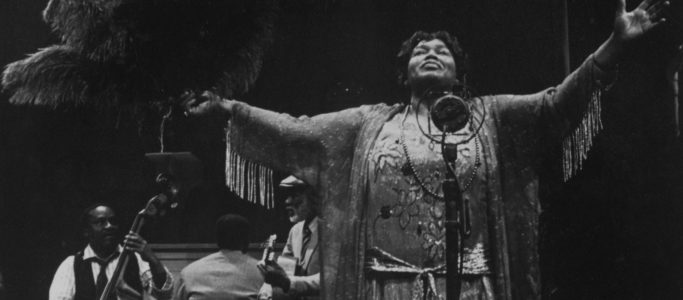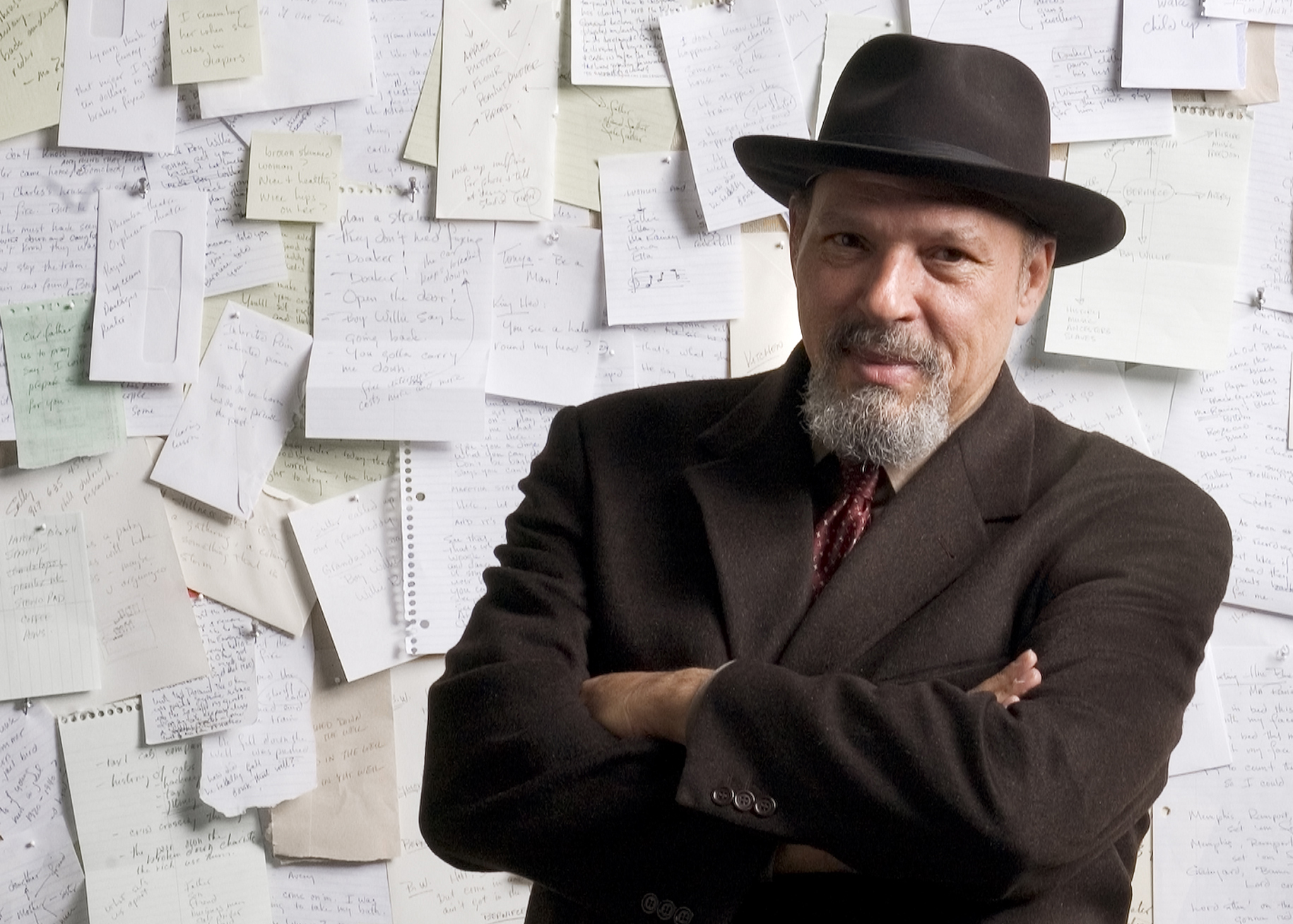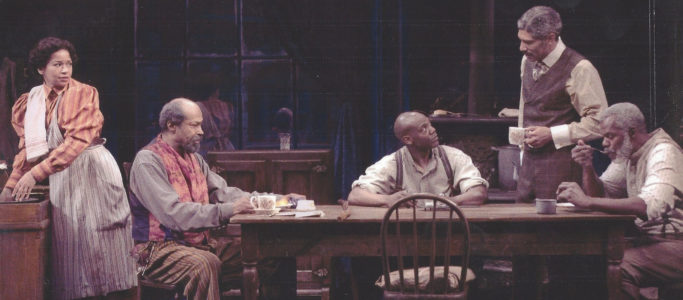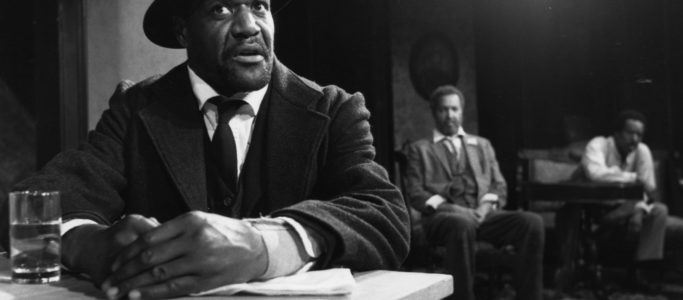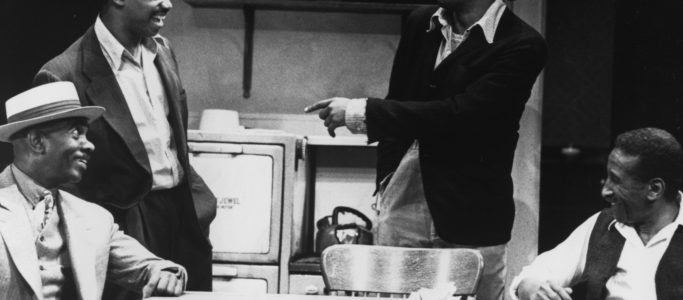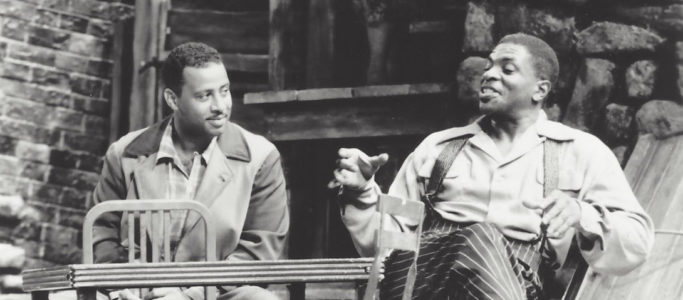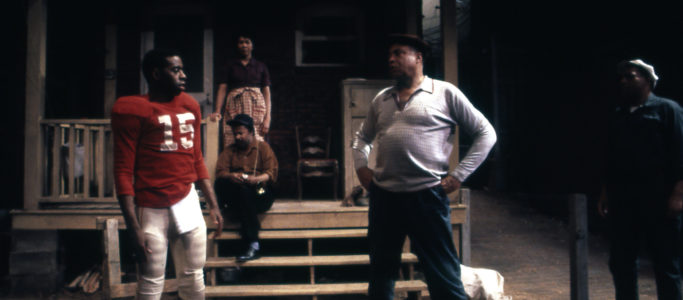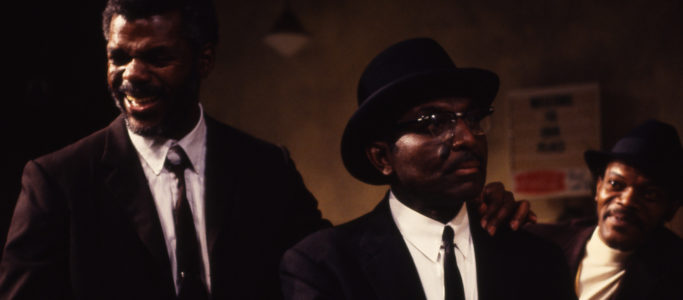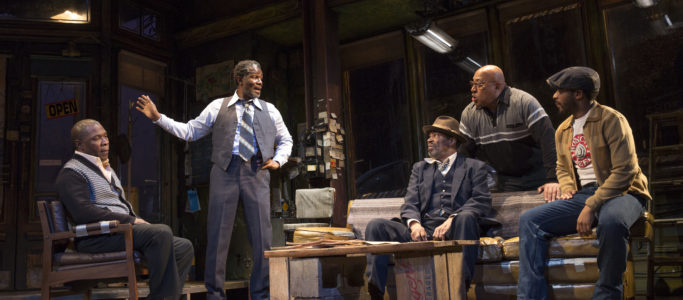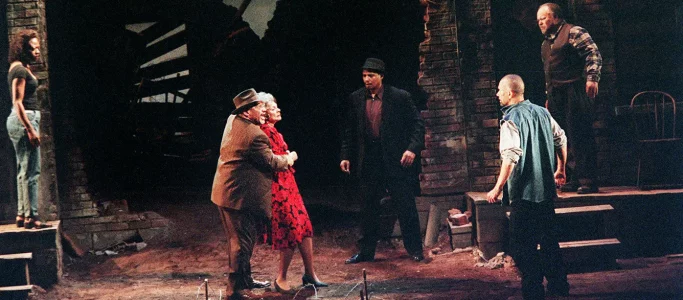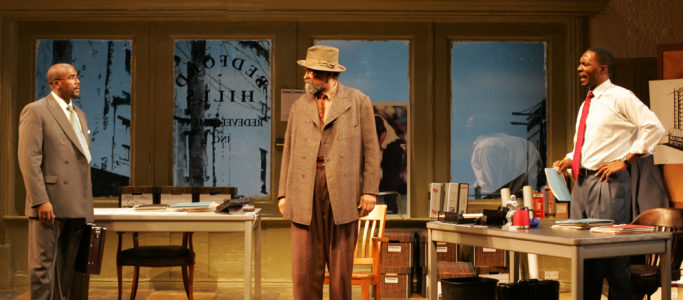Ma Rainey’s Black Bottom
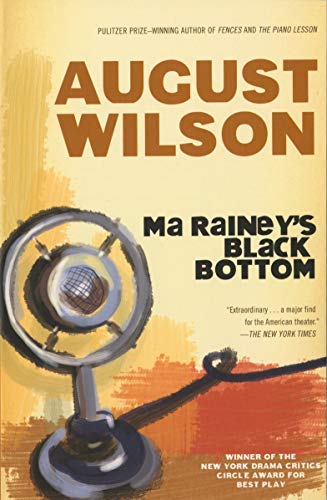
- Broadway Debut
-
October 11, 1984
Cort Theatre
- Performances
- 276
Set in Chicago in 1927, blues singer Ma Rainey battles racism and exploitation as one of the first black singers to get a recording contract.
In all of Wilson’s American Century Cycle, nowhere more outwardly apparent is the struggle for—and attainment of—Black power than in Ma Rainey’s Black Bottom. Ma will record on her own terms because she knows what is at stake. A volley of power drives the plot of the play, and Ma enjoys watching Sturdyvant and Irvin sweat at every stall or demand.
Ma Rainey is both physically and metaphorically front and center, of course, but Wilson exhibits his savviness in the dialogue of the rest of the band. Levee, the trumpet player, is most likely to live up to Ma Rainey’s fame with his drive and brashness, but is fatally plagued with a central question about the Black experience in America: “Where the hell was God when all of this was going on?” Although the circumstances change, this question remains constant to many of Wilson’s characters, and these internal conflicts force their actions, sometimes to their benefit and sometimes to their detriment.
In His Own Words
“The blues help you get out of bed in the morning. You get up knowing you ain’t alone. There’s something else in the world. Something’s been added by that song. This be an empty world without the blues. I take that emptiness and try to fill it up with something.”Ma Rainey, Act 2, Scene 1

August Wilson:
A Writers Landscape
August Wilson: The Writer’s Landscape, the first-ever exhibition dedicated to the life and works of the Pulitzer Prize-winning playwright, will open in spring 2022. The permanent exhibition will explore the people and places of Pittsburgh, where Wilson was born and raised, and which had a profound impact on shaping his worldview.
Explore Exhibit
